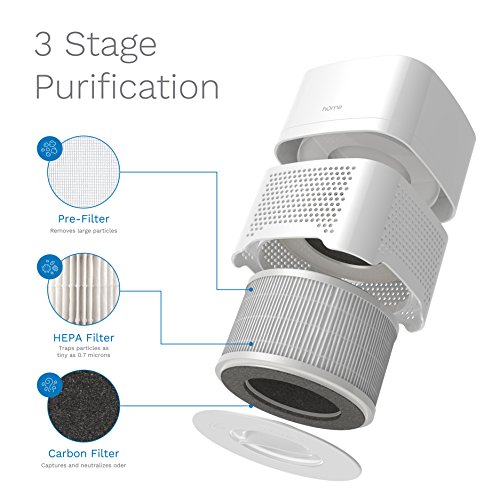Did you know that with some very minor changes in your home, you can reduce the amount of allergens present, and improve indoor air quality? All it takes is a good HEPA filter or two. Learn more about HEPA filters, how they work, and what in-home filters you can replace with HEPA-certified variants in our guide below.
What are HEPA Filters?
HEPA is an acronym that stands for High Efficiency Particulate Air. Filters that meet the HEPA standard remove the vast majority – 99.97% – of particles from the air that passes through them, provided the particle size is greater than or equal to 0.3 micrometers in diameter. For the sake of putting that in dimensions most of us are familiar with, the width of a human hair is typically 50 micrometers. So, the HEPA standard filters out particles which are around 150x smaller than the width of a human hair.
How HEPA Filters Reduce Indoor Allergens and Improve Air Quality
Many of the most common indoor allergens, dust, pet dander, pollen, and other allergy triggers in the air are made up of small particles. By using HEPA filters, these particles are trapped in the filter rather than allowed to continually circulate in your home. Most home heating and cooling systems will theoretically run through the air in a home every 10-15 minutes, depending on the system’s rating, size of the home, and other factors. This is a great opportunity for a HEPA filter to strain out dust, dirt, dander, pollen, and other allergens, and output cleaner, healthier air from your home’s vents.
This is accomplished via the design of HEPA filters. Generally, they have a network of randomly arranged fibers inside, usually fiberglass, which help to capture particles by several different methods depending on their size, airflow, and filter design. These different methods ensure that the full range of particle sizes are being filtered, and are key to the high efficiency of these filters.
Common Applications for HEPA Filters
Obviously, as discussed above, home air filtration is one of the key places to use HEPA filters to improve indoor air quality. Using a HEPA-certified filter in your primary HVAC system, blower, or circulating fan in the home gives you the best bang for your buck. Other applications include use on vacuum cleaners (to avoid tossing up lots of dust and small particles into the air that runs through the unit), in air purifiers, standalone HEPA filter units, and similar.
Conclusion
HEPA filters are an excellent way to reduce indoor allergens and improve indoor air quality in your home. If you suffer from allergies, asthma, sensitivities, and/or any kind of respiratory problems, a HEPA filter in your home HVAC system, air purifier, and vacuum cleaner might be just what you need to start feeling better.
If you’re concerned about the level of air pollution and allergens in your home, the best place to start is with a measurement from an expert. This will tell you if you need to take more drastic actions, above and beyond HEPA filters, to improve your air quality. One such expert firm that can provide this information is FunGuy Inspections in the greater Los Angeles area. To book an appointment or learn more, explore the website of FunGuy Inspections at https://funguyinspections.com or Contact Us.

